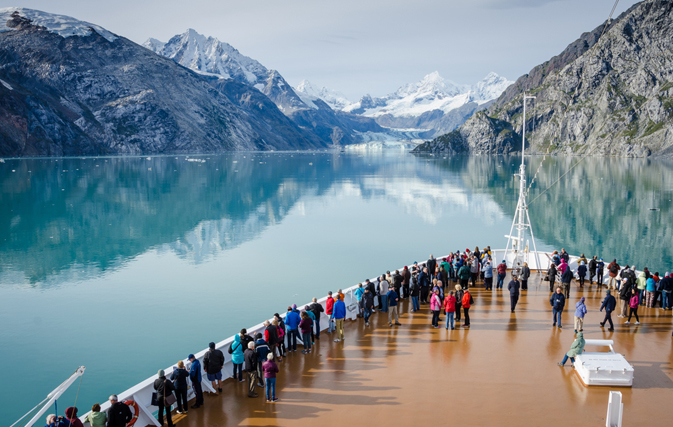VANCOUVER — Two U.S. bills proposed by a congressman and senator aimed at allowing Alaska-bound cruise ships to bypass Canadian ports would have a “devastating” effect on B.C.’s economy, the head of Victoria’s harbour authority says.
Alaska Sen. Lisa Murkowski proposed a bill Wednesday that would allow cruise ships carrying more than 1,000 passengers and bound for Alaska a permanent exemption from the Passenger Vessel Services Act (PVSA).
Under the act, foreign-built ships are not allowed to carry passengers between two U.S. ports without a stopover in a foreign country.
“(The act) had the unintended consequence of putting Alaskan businesses at the mercy of the Canadian government,” she said during an address to the Southeast Conference Annual Meeting.
“It nearly wiped out southeast Alaskan economies as we saw business after business ready to welcome visitors, but unable to because Canadians would not respond to our requests to allow foreign stops at their ports to meet the requirement of PVSA. We cannot let that happen again.”
This summer’s temporary measure, the Alaska Tourism Restoration Act, was signed by U.S. President Joe Biden in May 2021. The legislation allows U.S. cruise ships to temporarily sail to Alaska without having to stop in Canada.
Under the proposed new legislation from Alaska Sen. Murkowski, foreign cruise ships carrying more than 1,000 passengers can bypass Canadian ports if they wish.
Ian Robertson, the CEO of the Greater Victoria Harbour Authority, said the bill would hurt Victoria and British Columbia’s economy.
“I’m both surprised and disappointed,” Robertson said in an interview. “It would be devastating.”
Cruises bring in roughly $143 million a year to Victoria’s economy and create hundreds of jobs, he added.
But Robertson added he believes the province is taking the threat of an economic impact more seriously than it did in the spring when a bill was quickly introduced and passed in the U.S. House of Representatives aimed at adjusting the same law.
Premier John Horgan initially said at the time the legislation was a “blip” that wasn’t likely to pass quickly, before it did and he set up meetings with U.S. officials.
Robertson said the next federal government needs to take the issue seriously after Monday’s election.
“It’s a file that requires all hands on deck,” he said. “There needs to be advocacy at the highest level.”
B.C. Tourism Minister Rob Fleming said in a statement that he is working with industry leaders and his federal counterparts to raise awareness of the issue.
“The cruise ship industry is vital to B.C. tourism, and to thousands of people whose livelihoods rely on the regular arrival of ships,” he said.
Fleming said Horgan has raised the issue with the Canadian ambassador to the U.S. and Prime Minister Justin Trudeau.
As reported yesterday in Travelweek Daily, Alaska congressman Don Young introduced the Tribal Tourism Sovereignty Act earlier this summer.
“My proposal is simple yet powerful,” says Young in an opinion piece titled ‘Charting a Course for the Next Century of Maritime Policy’, which ran this week in both The Anchorage Daily News and the Vancouver Sun. “Large foreign-flagged passenger vessels that call on ports or places in the United States owned by Tribes or Alaska Native Corporations would be compliant with the PVSA’s foreign-stop requirement.”
“We cannot allow such a vital portion of our economy to be held hostage by a foreign country, in this case, Canada,” he said.
Young added: “Upon the expiration of the Alaska Tourism Restoration Act, Canada will once again have de facto veto authority over Alaska’s cruise industry. As a result, we must reform the PVSA to protect the sovereignty of our tourism economy.”
Canada’s cruise ship ban, originally extended until February 2022, is currently set to lift Nov. 1, 2021, as announced by Transport Minister Omar Alghabra on July 15. The announcement was cheered by ACTA and other industry groups.
With file from The Canadian Press

